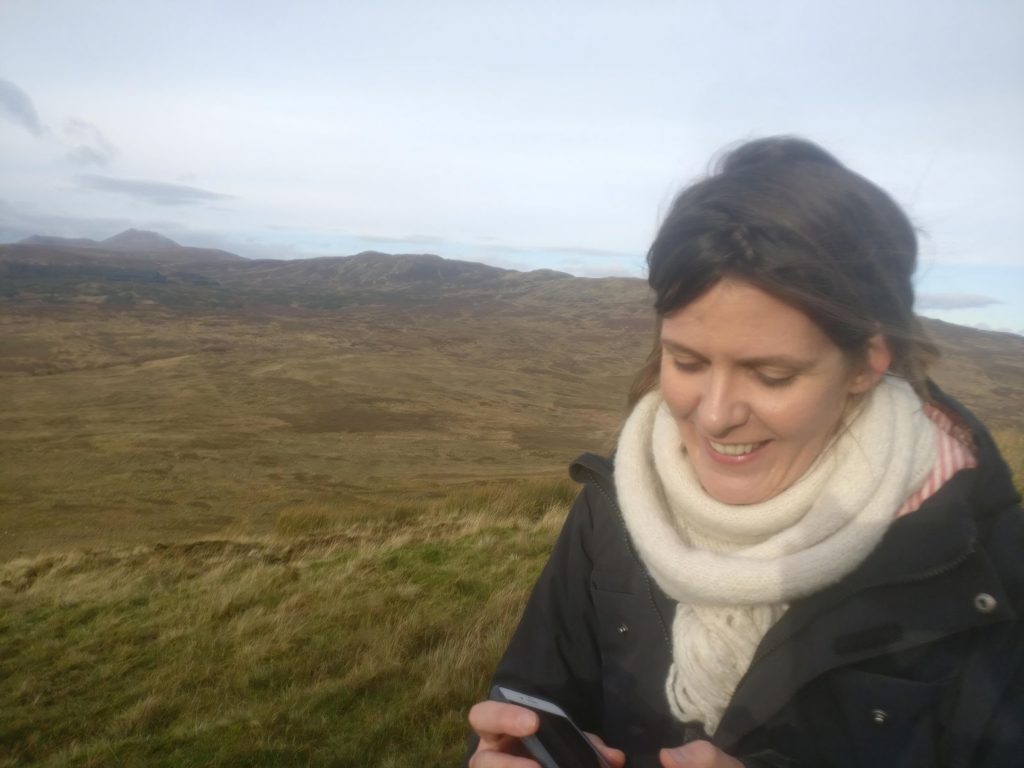Dr Sabine Matallana-Surget is an accomplished Associate Professor of Environmental Molecular Microbiology. To celebrate International Women in Science Day, we had the opportunity to ask her some questions to discover what drives her and learn more about the inspirations and motivations that sparked her passion for a career in the scientific field. Let’s get started!
Job title
Associate Professor in Environmental Molecular Microbiology at the University of Stirling in Scotland, Division of Biological and Environmental Sciences, Faculty of Natural Sciences

What course/subject did you study?
I studied at Sorbonne University in Paris, specialising in Biochemistry (BSc Degree), Molecular & Cell Biology (MSc Degree), and completed a Joint doctoral Degree in Marine Molecular Microbiology between two countries, (France and Australia), thus being awarded a double diploma.
Briefly describe what you do and your areas of interest in your particular field?
The impact of climate change on the world’s oceans represents an undeniable societal challenge. My research focuses on investigating the molecular responses of marine bacteria, which are the most abundant organisms and play a pivotal role in regulating the climate, to different environmental perturbations and pollutants. I explore how these microorganisms have evolved fascinating ways to adapt, respond, and regulate their metabolisms, demonstrating resilience to severe pollution on our planet and potential biotech applications. Understanding their functioning in complex environments fascinates me. I have used and developed original molecular methods (proteomics) applicable to diverse research questions in environmental science and beyond, including clinical research and pharmaceuticals, leading to exciting international collaborations.
What got you interested in science/STEM?
I began studying Biochemistry because I had a keen interest in both Biology and Chemistry, equally. When I started Uni at the age of 18, I was determined to find a career that would combine Biology & Chemistry, as well as creativity. Creativity was a crucial element of my ideal profession. Initially, my plan was to obtain a required BSc degree in Biochemistry to enter the very competitive world of perfumery – working in a lab to craft luxurious scents. This captivating and highly competitive profession demands not only mastery of chemistry but also a deep understanding of botany, coupled with innate talent (assessed through olfaction exams) and, of course, creativity. The role of a perfumer or “nose” (name of the profession in France), though scientifically rooted, remains relatively unknown to many. As a student my aspirations didn’t lean towards a conventional academic path in science. Back then, I mistakenly perceived Research or Academia as monotonous, lacking the creative spark I needed – a complete misconception of the dynamic nature of research. A couple of years after I started my studies at Sorbonne University in Paris, my perspective of a career in STEM underwent a dramatic shift. I found myself passionate about the core science and inspired by the numerous multi-talented professors, who demonstrated a combination of robust scientific knowledge and immense creativity. Today, I firmly stand by my career choice, and wouldn’t change my job for anything else. I often share with my students the importance of patience, open-mindedness, and the willingness to explore different paths. Finding one’s dream job in science, one that resonates with their personality and/or life choices, is undoubtedly a journey of self-discovery.
In your opinion, what makes a scientist?
Scientists are exceptional problem solvers, passionate and hardworking individuals, showing curiosity across various fields. They typically have diverse interests, both within the field of science and outside academia. In my opinion, the best scientists are the most creative individuals who think outside the box and who are always one step ahead. Additionally, scientists possess this ability to turn criticisms or rejections into opportunities for continuous growth and to make greater discoveries.

What makes you get up in the morning?
Well, I have to say, great coffee with breakfast definitely plays a part! The combination of my projects (both professional and personal) and time spent with my loved ones makes the start of a new day always exciting for me. Time flies and as a morning person, I am motivated to start early to make the most of each precious day.
What excites you about your field/work?
Most of my fieldwork has been abroad, and what excites me is the knowledge exchange with scientists worldwide. Since my appointment at the University of Stirling 9 years ago, I’ve continuously strengthened my international collaborations with numerous countries around the world. I’m not only curious about sciences, but also about different cultures, languages and backgrounds. Working in different labs continually reminds me that there’s always more to learn, which keeps me motivated to expand my knowledge and explore further.
What is the coolest thing about your work/research?
The multidisciplinary and international aspects of the job make it incredibly interesting and rewarding. From core science to mentorship, the breadth of tasks and responsibilities is extensive. Each day is unique! It’s definitely not a repetitive job!
If you could have dinner with 3 scientists (living or dead) who would you invite?
This is a great question. I would take this opportunity to travel back in time and around the globe. Firstly, I would embark on a journey to the Renaissance period in Italy and have dinner with Galileo Galilei – also philosopher, and talented lute musician. Next, I would be delighted to share a French meal in the flat on Rue Glaciere, Paris 13th, of Pierre and Marie Curie, not far from where I grew up. Lastly, I’d love to meet the renowned biotechnologist J. Craig Venter, followed by a private tour of his Institute. His career has consistently demonstrated a forward-thinking approach, always staying one step ahead. An inspiring career!
What one future invention would you like to see become a reality?
Teleportation, to instantly travel across different time zones in a single day 🙂
In your opinion, what’s the most exciting problem in science/STEM currently facing humanity?
In my opinion, the most exciting aspect of science/STEM is not necessarily the problems we face, but the innovative solutions emerging across all fields of science. The real excitement lies in the interdisciplinary nature of STEM, where different disciplines come together to tackle complex challenges. This interdisciplinary approach fosters collaboration, creativity, and the development of groundbreaking solutions to pressing global issues.
If you didn’t pursue a career in science, what other line of work do you think you would have went into?
I would have pursued a career as a perfumer, as I mentioned earlier. Otherwise, given my need for creativity, I would have explored other artistic-related avenues outside of science. To be honest, the ideas and passions across very different domains seemed endless, especially when I was younger! However, today, my love for my work has only deepened, and I wouldn’t choose another job.
Can you tell us a science joke?
Let me think… Ah, I have one! In French, we call it a “carambar” (candy) joke, referring to a bad joke. So: Why is the mushroom always invited to parties? Because he’s a fungi.
What words of advice do you have for young people thinking of a career in STEM?
I would encourage younger generations to give it a try, as they may have misconceptions about the diversity of careers in STEM. Remember, academia is not the only path. Be enthusiastic and fully embrace your journey in STEM – you will learn so much regardless. Trusting and listening to your peers, who can offer valuable guidance, is essential along the way.

